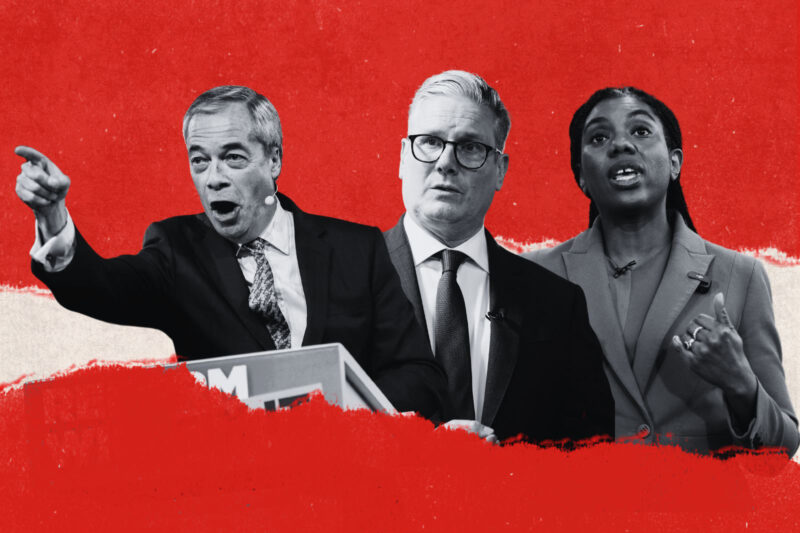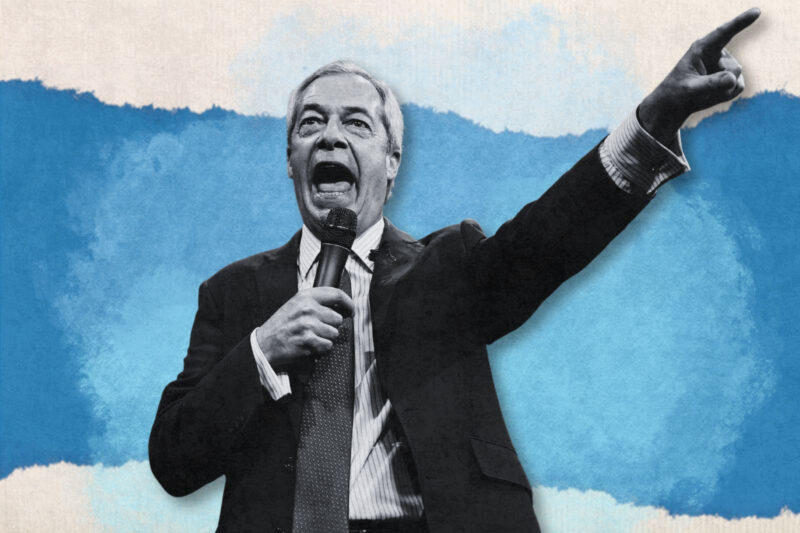The scale of Tory election losses masks voter apathy towards Labour
Last week’s local election results saw some stunning triumphs for Keir Starmer — but Labour needs to engage with Muslim communities over its stance on Gaza

Local elections rarely capture the public’s imagination but in what is almost certain to be a general election year, they serve as a means to gauge the mood of the country. Last week’s local elections felt particularly unique, and having covered more than half a dozen over the course of my career, I was surprised by the level of dissatisfaction most voters felt towards both the Conservatives and Labour. Although the results tell a story of winners and losers, the reality of how voters actually feel is more bleak.
On the face of it, the results suggest there is a huge mountain for Rishi Sunak and his party to climb if they want to stay in power. There was little respite from the bad news on Wednesday when the Conservative MP for Dover Natalie Elphicke defected to the Labour Party, marking the second such defection in two weeks for Sunak. In a statement, Elphicke described the Tories as “a byword for incompetence and division” and accused Rishi Sunak of “broken promises” and abandoning key pledges.
The defection underlined the fact that this was one of the Conservative party’s worst local election results for decades. There was very little to cheer about on the night: the party lost 474 council seats and one of its most high profile regional mayors, Andy Street, was defeated by Labour’s Richard Parker in the West Midlands.
A number of the Tory MPs I’ve spoken to about Street’s loss say there could not have been a clearer indication of the looming disaster that awaits them at a general election if they do not change course. Conservatives also face other hurdles. On Thursday 9 May the Bank of England will meet to discuss whether to cut interest rates and the following day the Office for National Statistics will release the latest round of GDP figures which will tell us if the UK is out of recession. If the economic news is bad it will pile pressure on an already beleaguered Sunak, who will be keen to shift attention elsewhere as soon as possible.
That sounds like good news for Labour, and the local election results saw some stunning triumphs for the opposition, including in the so-called Red Wall, which the party needs to reclaim to have any chance of forming a government. Overall, 1,158 Labour councillors were elected in total and its two most high-profile mayors, Sadiq Khan in London and Andy Burnham in Manchester, were re-elected.
But having spoken to countless voters across the UK last week, it was rare that anyone was voting for Labour out of excitement for what the party has to offer. Instead, people told me they were fed up with the Conservatives. That could be a cause for concern — as one northern Labour MP put it to me: “I don’t think we have much resilience in our vote, there is no excitement about us. It could change quickly.”
There are other more significant issues too. While covering the mayoral race in the West Midlands it was clear to me that Muslims, who had traditionally voted for Labour, were far from happy with the party’s position on Gaza. Many felt Labour had taken their vote for granted. One community leader in the Midlands told me countless Muslims had explained to him that they felt their votes did not matter and it was time for that to change.
This was most evident in the results. The incumbent West Midlands Tory mayor Street is popular within his party and with the public. He had won against the odds in two previous elections, but Labour managed to narrowly win by just over 1,500 votes. Significantly, the independent candidate, Ahmed Yakoob, who stood on a Gaza platform, secured third place with almost 70,000 votes. The majority of those voters are believed to be Muslims who would have previously supported Labour. If Yakoob had managed to wrestle another couple of thousand votes away from Labour, it may have impacted the final result.
Yakoob’s success has been a real eye opener for many within the Labour party. He has since said he will stand in the general election in Birmingham’s Ladywood constituency, currently held by Labour MP Shabana Mahmood. Analysis done by Will Jennings, of the University of Southampton, shows there was almost an 18% drop in the Labour vote in areas where more than one fifth of people identified as Muslim. That, coupled with George Galloway’s recent surprise win in Rochdale, shows there is a problem here for Keir Starmer’s party.
Labour sources tell me they are aware there could be trouble in some areas at the general election. Ilford North, where Wes Streeting, the shadow secretary of state for health and social care, is an MP, is one race that has been highlighted to me. The constituency is home to a large Muslim population and a coordinated campaign to unify behind an independent candidate standing on a Gaza ticket could prove troublesome. Local Labour sources say they are not overly concerned, but the West Midlands mayoral result shows the strength of feeling could have an impact on the party’s general election performance.
Labour leaders are publicly talking about rebuilding trust with voters disaffected by its stance on Gaza. Pat McFadden, Labour’s national election coordinator, said it would “work to get people’s support back” and senior figures within the party have told me of multiple meetings to discuss plans for further engagement with Muslim communities. Muslim Labour MPs have also been in discussions with Starmer’s office about how to best navigate the situation, which they fear could escalate ahead of the general election.
The prime minister, however, has an almighty challenge ahead of him. Not only does he need to close a huge opinion poll gap, but he also needs to unite those at war with each other over the direction the Tories should take. He will also need to contend with the fact there will be some colleagues who will be considering whether or not he’s the right person to lead them into the general election. For a prime minister already under pressure, a rancorous leadership battle is the last thing he needs.
Shehab Khan is an award-winning presenter and political correspondent for ITV News
 Newsletter
Newsletter













